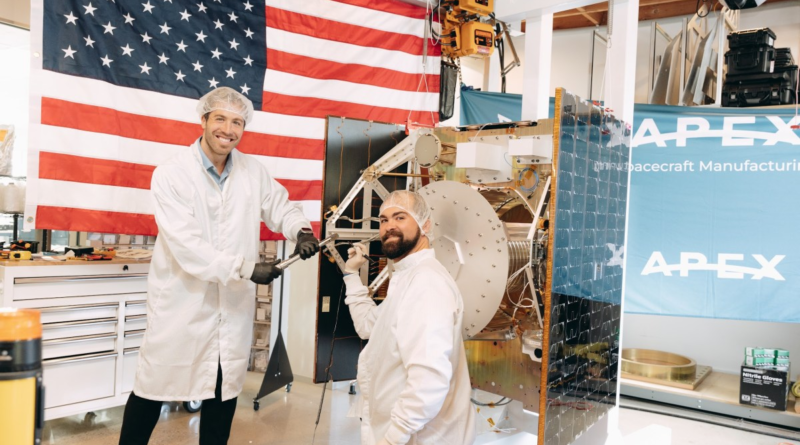a16z-backed Apex Space’s first satellite ‘healthy’ on orbit
Apex Space just moved one step closer to its goal of upending satellite bus manufacturing, with the startup announcing on Tuesday that its first vehicle is healthy on orbit.
The company launched its first satellite, the first of a class Apex is calling “Aries,” on SpaceX’s Transporter-10 rideshare mission on Monday. Apex’s mission operators were able to establish contact with the spacecraft very shortly after it deployed into orbit because it happened to be flying over a ground station, Apex CEO Ian Cinnamon said in a recent interview.
The company first received what’s called a UHF beacon — essentially a sort of back-up radio signal — that transmitted data packets on the spacecraft’s state of health. Mission operators were able to downlink a few of those state of health packets before switching to an S-band radio. This enabled the spacecraft to send a higher rate of data and, crucially, enabled bidirectional communication with ground stations.
This data confirmed that the spacecraft was alive and well in orbit — and marks, to the best of their knowledge, a new record of one year for the fastest clean sheet design to production spacecraft on orbit.
Los Angeles-based Apex is now preparing to commence a series of tests on the vehicle and its subsystems before turning the platform over to customers. Those customers, who are not named, will run their payloads for around six months.
It wasn’t always part of the plan to fly customer payloads on this first mission, which was originally designed as a technology demonstrator, Cinnamon said.
“But as we started talking to customers who would want to buy entire satellites for themselves, […] they started saying, well as a way to get to know you, why don’t we pay you to put a small payload on here and test something out for a few months? That then led to us saying, Well, why not? We have the room on it, it’s good practice for us. We make a little bit of money and it’s a good relationship builder.”
After customers complete their objectives, the Aries SN1 satellite will become an ongoing software testbed on orbit, which Apex will use to test flight software and the guidance, navigation and control systems. The satellite is designed to last another five years in space.
“That will be incredibly valuable over the next many years while the satellite stays in orbit,” Cinnamon said.
Apex, whose backers include Andreessen Horowitz and Shield Capital, is building productized satellite buses to solve the satellite bus “bottleneck” facing the space industry. In addition to Aries, an ESPA-class spacecraft bus that can support payloads up to 100 kilograms, the company is also developing two larger bus product lines, Nova and Comet. Apex is aiming to start production of these in 2025.




